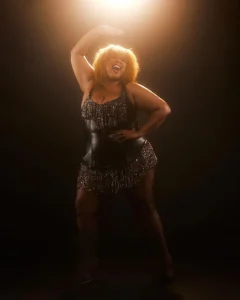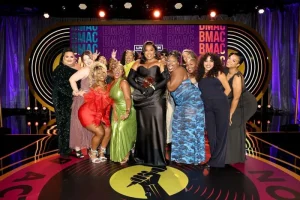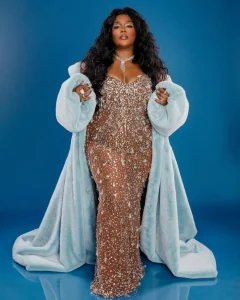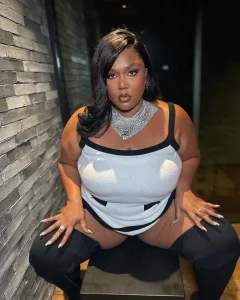The Grammy-winning musician Lizzo is openly discussing the subtleties of her international success and the largely white fan base that frequently accompanies it.

The 34-year-old music sensation, whose real name is Melissa Viviane Jefferson, gave an exclusive interview to Vanity Fair for their November cover story, sharing details about her musical path and motivations. Lizzo brazenly declared that she doesn’t write songs with a particular racial audience in mind, even though she has achieved great levels of fame. Rather, her music serves as a means of self-healing from life’s hardships and is a true representation of her Black experience.
Despite having R&B, hip-hop, and gospel roots, Lizzo has unquestionably influenced pop music with songs like “Juice,” “Good As Hell,” and the most recent one, “About Damn Time.” After making her debut in 2019 with “Cuz I Luv You,” Lizzo attracted a broad fan base, including many white followers, but she made it clear that her main audience consists of Black women.

“We need self-love and self-love anthems more than anybody else,” Lizzo said passionately. Her song is meant to speak to Black women who, like her, have experienced social pressures, bullying, and a lack of recognition. Because it is a fundamental part of her identity as a Black artist, she finds it confusing when detractors question her dedication to making music from a Black perspective.

Speaking about her recent incident over the 200-year-old crystal flute owned by Founding Father James Madison, Lizzo says that Black women in America still need to make great strides. She openly expressed her depressing thoughts, saying that Black women had not always received fair or respectful treatment. When privileged people take responsibility, Lizzo sees optimism blossoming, highlighting the need for change, especially for people like herself, a fat Black woman.
Lizzo’s advocacy demonstrates her dedication to social causes. After Roe v. Wade was overturned in June, she sent $500,000 to the National Network of Abortion Funds and Planned Parenthood. Notably, Live Nation, her tour promoter, matched this donation with an extra half a million dollars. Lizzo connects the ruling’s strong racial component to what she perceives to be a widespread problem of white male domination in the nation, with collaboration from white women and others.

In summary, Lizzo’s journey explores the nuances of race, identity, and activism in a way that goes beyond music. She is a powerful voice in today’s diverse and changing cultural scene because of her unwavering position and dedication to her roots, which support her message of self-love.
